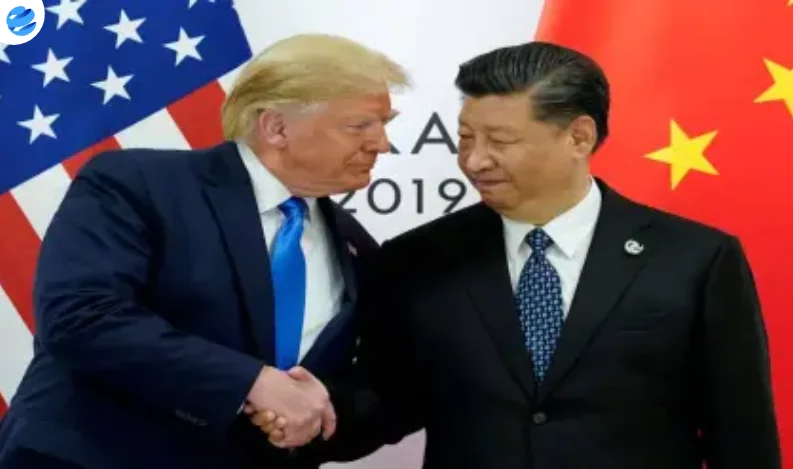A new round of high-level trade talks between the United States and China is set to begin in London on Monday, as both countries attempt to resolve a long-standing trade dispute that has seen tariffs imposed on billions of dollars’ worth of goods.
The discussions come just weeks after both nations agreed to a temporary truce, which lowered tariffs and provided a 90-day window to reach a broader agreement. However, the period since the deal has been marked by renewed accusations from both sides of failing to meet their commitments.
U.S. President Donald Trump confirmed on Friday that a senior delegation — including Treasury Secretary Scott Bessent, Commerce Secretary Howard Lutnick, and Trade Representative Jamieson Greer — will meet with Chinese representatives in the UK. Beijing has confirmed that Vice Premier He Lifeng will lead the Chinese side during his official visit from June 8 to 13.
The upcoming meeting follows a phone call between Trump and Chinese President Xi Jinping last week. Trump described the conversation as “very good,” saying it led to a “positive conclusion for both countries.”
According to Chinese state media, Xi urged the U.S. to roll back what he called “negative measures” taken against China. It was the first direct conversation between the two leaders since the current phase of the trade conflict began in February.
The latest trade tensions began after Trump introduced a new wave of tariffs, targeting multiple countries, with China facing the steepest hikes. Tariff rates between the two countries reached a peak of 145% before the temporary agreement in May reduced them — U.S. tariffs dropped to 30%, while China reduced its tariffs to 10% and pledged to lift export restrictions on critical minerals.
Despite the agreement, both governments have since accused each other of violating its terms. Trump claimed China had not resumed agreed shipments of rare earth minerals, which are essential to industries such as electronics and electric vehicles. In return, China accused the U.S. of continuing to impose trade barriers and failing to follow through on its obligations.
Over the weekend, China’s Ministry of Commerce announced that it had approved some export applications for rare earths but did not disclose which countries were involved. President Trump later said Xi had agreed to restart the trade of critical minerals, a move confirmed in part by U.S. economic advisor Kevin Hassett, who noted that shipments had resumed but not at the agreed levels.
Meanwhile, fresh data from Beijing on Monday showed mixed economic signals. China’s exports rose 4.8% in May compared to a year earlier, but the figure fell short of analyst expectations. Imports dropped by 3.4%, a significantly larger decline than the 0.9% fall predicted by economists.
The talks in London will be watched closely by global markets and industries affected by ongoing trade uncertainty. While the 90-day truce remains in place, both sides will need to demonstrate meaningful progress to avoid another escalation.























